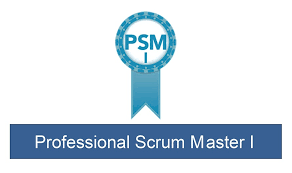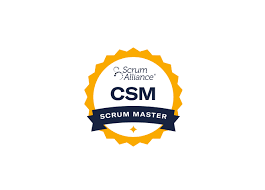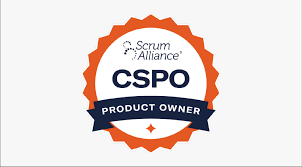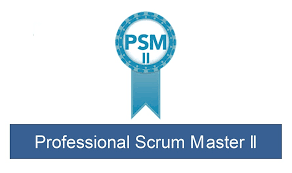Transform Your Career with PSM I Certification in Scrum
Agile practices are becoming increasingly essential, with 71% of organizations incorporating them into their Software Development Lifecycle. Notably, 72% of medium to large companies are planning to adopt Agile principles soon. Within this context, Scrum stands out as the most popular team-level methodology, utilized by 63% of Agile teams.
By obtaining your Professional Scrum Master Certification, you position yourself as a valuable asset in this evolving industry. Furthermore, research indicates that professionals with Scrum certifications can earn a median salary that is $16,000 higher than those without. Investing in your Professional Scrum Master training enhances your skills and significantly improves your career prospects and higher earning potential.
PSM I Professionals Can Get These Lucrative Job Opportunities
As a certified Professional Scrum Master, you will acquire the capabilities to lead teams, foster collaboration, and navigate complex projects with ease. But that is just the beginning of your Scrum Master career path! With this PSM training, you can aspire to Agile roles like Agile Coach, Product Owner, or even a transformation leader.
If you are ready to dive into the Agile world, this is your chance to exciting new career paths. Get ready to drive innovation and make a lasting impact in your organization in the following roles:
1) Scrum Master
A Scrum Master is a key member of a Scrum team. Scrum Masters ensure that all the Scrum events are being followed, and they coach the team in Agile and Scrum practices. A Scrum Master will benefit a lot from a PSM certification.
Become a key player in your organization by guiding teams to success. Scrum Masters enjoy an average annual salary of $97,000 and are in demand at top companies like Meta, Apple, YouTube, X, Workday, and Google. With your PSM I certification, you will be ready to facilitate collaboration, drive project success, and foster a culture of continuous improvement.
2) Agile Coach
Agile coaches play the role of a catalyst in organizations going through an Agile transformation. They guide teams in both adopting and sustaining Agile practices.
Agile coaches help organizations achieve true business agility by aligning strategy with execution in an Agile transformation. A PSM certification will give learners a great idea about Scrum tools and practices.
If you're aspiring to lead and mentor teams, the Agile Coach role is perfect for you. With an average salary of $137,608, Agile Coaches are sought after by industry giants such as Northrop Grumman Corporation, Accenture, Principal Financial Group, IBM, U.S. Bank, JPMorgan Chase, Bank of America, ManpowerGroup, and the Boeing Company. Your Professional Scrum Master Certification will provide you with the skills to transform organizations and elevate their Agile practices.
3) Product Owner
Product Owners are an important part of the Scrum team. Product Owners are responsible for taking decisions regarding product updates and features that are to be a part of each release. A Scrum Master certification like PSM will help them understand and work better in a Scrum team.
Step into a role that places you at the heart of product development! As a Product Owner, you can expect to earn around $147,500 annually. Leading companies like LinkedIn, Airbnb, Meta, Airbnb, X, Google, Dropbox, and Apple are on the lookout for certified professionals who can define product vision and maximize value delivery. Your PSM certification will sharpen your ability to prioritize effectively and collaborate with stakeholders.
4) Agile Project Manager
While project management is a discipline that has been in existence for centuries, Agile is a new methodology. An Agile project manager uses Agile practices and concepts to project management to make it more flexible and adaptable.
For those who want to manage projects with an Agile twist, becoming an Agile Project Manager is an incredible opportunity. This role boasts an average salary of $163,000, with opportunities at Intel, Apple, Meta, PwC, Pacific Gas and Electric, and Accenture. Your PSM I certification will assist you in managing teams and delivering projects successfully while adapting to changing needs.
Benefits of Pursuing the PSM I Certification
The Professional Scrum Master Course offers a wealth of benefits for learners seeking to enhance their careers in Agile methodologies. Here’s a detailed look at what you can gain:
- Global Recognition: The PSM I certification from Scrum.org is recognized internationally as a benchmark for Scrum Master expertise. This credential enhances your professional profile, making you an in-demand candidate in a competitive job market. Employers appreciate the commitment to mastering Scrum principles, which adds significant credibility to your qualifications.
- Comprehensive Knowledge: The PSM course provides a thorough understanding of Scrum principles, roles, events, and artifacts. You will learn to implement these concepts in real-world scenarios, fostering an Agile mindset that helps you adapt to change and drive team performance. This foundational knowledge is crucial for anyone aiming to succeed in Agile environments.
- Enhanced Career Opportunities: With the Professional Scrum Master Certification, you can pursue various roles such as Scrum Master, Agile Coach, Product Owner, or Project Manager. The growing demand for Agile professionals means certified individuals enjoy better job security and more career advancement opportunities. This certification positions you to take full advantage of these prospects.
- Practical Skills Development: The course emphasizes practical skills vital for success, including effective facilitation techniques and conflict resolution strategies. These skills empower you to lead teams and guide Scrum events effectively, contributing to a more productive and harmonious work environment.
- Networking Opportunities: Certification connects you to a global community of Scrum practitioners and Agile professionals, offering valuable networking opportunities. Engaging with peers and experts allows for knowledge sharing and collaboration, while access to Scrum.org resources keeps you informed on best practices and trends.
- Personal Growth: Earning the PSM certification boosts your confidence in applying Scrum practices, leading to improved performance in your role. It promotes a mindset of continuous improvement and lifelong learning, inspiring you to seek further development in Agile methodologies.
- Employer Value: As a certified Scrum Master, you become a key asset to your organization, enhancing team dynamics and project success. Your role can also involve supporting Agile transformations and fostering a culture of efficiency and innovation within your company.
Is the PSM I Course Worth It?
The PSM Course is a valuable investment in your career. With 16 hours of live, instructor-led training from certified Scrum experts, imbibe real-world insights and practical skills in Scrum and Agile methodologies. The course emphasizes hands-on learning through engaging simulations and activities, ensuring you not only understand Scrum principles but can apply them effectively. By the end of the course, be ready to confidently lead Scrum teams and drive Agile transformations within your organization.
Why Take the PSM I Certification Course?
Taking the Professional Scrum Master Course is a smart move if you are looking to advance your career in Agile. This certification is globally recognized and demonstrates your expertise in Scrum, making you a standout candidate in the job market. It opens the door to new career opportunities, enhances your earning potential, and positions you as a leader capable of facilitating Agile practices and driving change. Plus, with 16 PDUs and 16 SEUs earned upon course completion, you can further your commitment to continuous learning and professional growth. The PSM I certification will give you the skills and credibility to lead Agile initiatives successfully.
Everything You Need to Know About the PSM I Certification
The PSM I exam assesses your understanding of Scrum principles and practices so that you are well-prepared to tackle real-world challenges. This Professional Scrum Master Training includes exclusive materials developed by the co-creators of Scrum, providing you with fundamental insights. To help you prepare for the certification exam, practice with five mock tests, each with 80 questions, which will allow you to judge how exam-ready you are. Additionally, the course fee covers your exam fee as well, simplifying the process. With this comprehensive online PSM training, you can pass the PSM I exam and advance your career in Scrum.
Professional Scrum Master Course Highlights
- 16 Hours of Live, Instructor-Led Sessions: Engage in live, interactive online classes where you can ask questions, share experiences, and learn in real-time with experienced Professional Scrum Trainers with industry expertise. Take advantage of flexible schedules by picking a batch that suits your timing.
- Earn 16 PDUs and 16 SEUs for Continuous Learning: Boost your professional credentials on the go. Earning these PDUs exhibits your commitment to ongoing education, too.
- Training Material from Co-Creators of Scrum: Get access to exclusive content developed by the original creators of the Scrum framework, ensuring you are learning the most relevant and effective techniques. Get a
- Dive into Real-World Simulations and Activities: Experience practical exercises that simulate real-life Scrum scenarios, helping you build confidence and apply your knowledge. Master Scrum best practices that will help in real-work scenarios. Leverage Scrum simulations and case studies to develop practical knowledge about
- Practice for the PSM I Exam with 5 Mock Tests of 80 Questions Each: Prepare thoroughly with comprehensive mock tests that have the actual exam format, so you know exactly what to expect.
- Course Fee Includes Exam Fee: Be at peace knowing that your course fee covers the Professional Scrum Master Certification exam, making your path to certification simpler and hassle-free. Get comprehensive exam support and guidance at every step of your certification journey.
Key Skills You Will Gain in the PSM Course
After completing the Professional Scrum Master Course, you will have acquired skills that will enhance your value as a Scrum Master and contribute to your team's success. Here’s a look at the key skills you can develop:
- In-Depth Knowledge of Scrum Framework: You will have a better understanding of Scrum principles, roles, events, and artifacts, enabling you to implement Scrum effectively in your organization. You will be able to lead self-organizing teams.
- Facilitation Skills: Learn how to effectively facilitate Scrum events, ensuring productive meetings that boost team collaboration and decision-making.
- Servant Leadership: Embrace the mindset of a servant leader by focusing on enabling your cross-functional team and promoting a culture of continuous improvement and accountability. Get a solid understanding of the Scrum Master accountabilities.
- Conflict Resolution: Develop techniques to handle conflicts within teams, stimulating a balanced work environment where you constructively address issues.
- Agile Mindset: Cultivate an Agile mindset that emphasizes adaptability, flexibility, and a focus on delivering value, helping you navigate changing project requirements with ease.
- Effective Communication: Enhance your communication skills, enabling you to clearly convey ideas, provide feedback, and engage your stakeholders at all levels. Promote transparency in communication.
- Coaching and Mentoring: Learn how to coach team members in Scrum practices and Agile principles in this Professional Scrum Master training, helping them grow and succeed in their roles.
- Problem-Solving Abilities: Strengthen your critical thinking and problem-solving capabilities so that you can tackle challenges arising during development processes. Refine these skills in our hands-on Scrum practice sessions.



